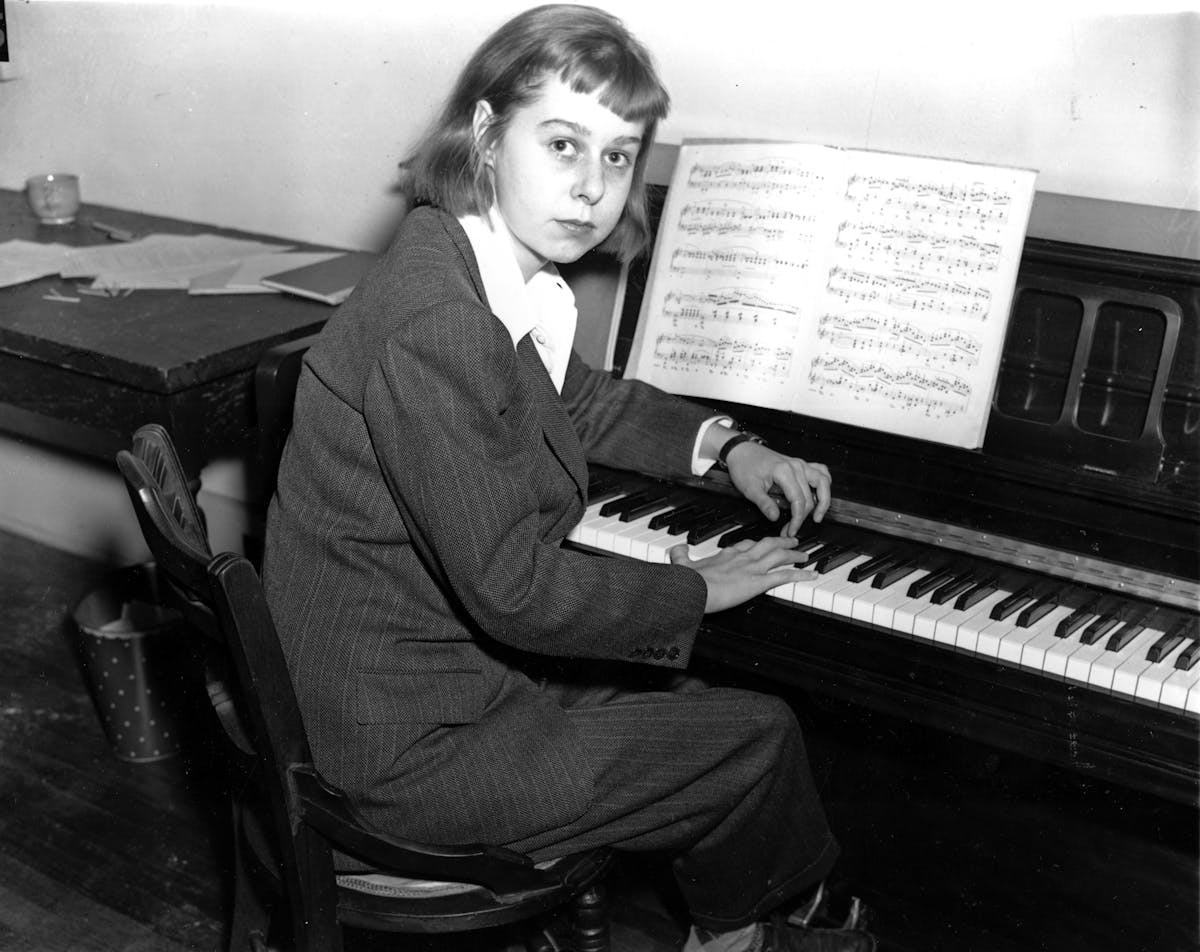Why Carson McCullers Matters Even Today
While plenty of space is accorded to McCullers’s failing health and eccentricities, what comes through is her indomitability — a favorite Faulkner word.

‘Carson McCullers: A Life’
By Mary Dearborn
Knopf, 496 pages
At West Point, just before beginning a reading of his new novel, “The Reivers,” William Faulkner spotted Carson McCullers in the audience. He walked down an auditorium aisle, embraced her, and called her “my daughter.” What did he mean and why did he exhibit such a public display of affection in such an uncharacteristic way? What did the moment say about McCullers?
Born 20 years after Faulkner, McCullers, in the next generation of Southern writers, calls to mind Flannery O’Connor’s observation that the “presence alone of Faulkner in our midst makes a great difference in what the writer can and cannot permit himself to do. Nobody wants his mule and wagon stalled on the same track the Dixie Limited is roaring down.”
Faulkner did not achieve literary greatness until his 30s. By her 30s, McCullers, buoyed by her literary-minded mother’s touting and cosseting, was a literary star, author of three novels, “The Heart is a Lonely Hunter,” “Reflections in a Golden Eye,” “The Member of the Wedding,” and a novella, “The Ballad of the Sad Café.”
In high school, I read “The Sound and the Fury” and “The Ballad of the Sad Cafe” side by side. Critics have called such works “Southern Gothic,” and have emphasized how Faulkner and McCullers dwell on grotesques — for example, the idiot Benjy and the female giant Miss Amelia in love with the hunchback, Cousin Lymon.
To say that Faulkner and McCullers are obsessed with grotesquerie is to miss the point of their fiction, which embraces everyone in the human family, not wishing to leave anyone out — a powerful rebuke to the conformism of high school, and of society at large. Neither McCullers nor Faulkner tolerate ridicule of the human spirit — no matter what form that spirit takes, or what relationships manifest the bonds of humanity.
Carson McCullers had at least three strokes by the age of 30. She also suffered from an involvement in her family’s three-generation history of alcoholism, and spent the last 20 years of her life often in agonizing pain. Yet she seemed virtually born to become Faulkner’s daughter, his legatee. So far as I know, he never treated any writer as tenderly as he did McCullers.
Mary Dearborn’s biography might well have become what Joyce Carol Oates has dismissed as pathography, dwelling on the writer’s weirdness and illness. While plenty of space is accorded to McCullers’s failing health and eccentricities, what comes through is her indomitability — a favorite Faulkner word.
If McCullers is almost never without pain in this biography, she is also never without persistence and pluck, so that the hardy John Huston, who had his own two youthful years of bad health, recognized her as an unvanquished human being. Not only did he adapt “Reflections in a Golden Eye” into a splendid film, he also invited McCullers to his Irish estate and treated her like a revered figure and family member whom Faulkner had honored.
Ms. Dearborn’s biography also includes a compassionate and insightful account of McCullers’s tormented marriage. Reeves McCullers, for all his faults, never stopped loving his wife nor lost faith in her greatness — to the very last day, when he took his own life. Similarly, Tennessee Williams saw in McCullers, the woman and the writer, a kindred spirit who empathized with the outcasts of society and showed their tragic nobility.
This biography has a particularly satisfying Epilogue, which goes beyond its subject’s death, to an account of her literary legacy. We have more to learn about her, Ms. Dearborn notes, having had access to McCullers papers that were not available to biographer Virginia Spencer Carr, who published a fine biography, “A Lonely Hunter: A Biography of Carson McCullers,” in 1975.
Here is Ms. Dearborn’s pithy verdict on why Carson McCullers matters even now: “We read Carson’s work today because she taps into the universal sense that we are not understood, not loved for ourselves. Carson provides confirmation that our common search means we are less alone. Yet we are no less lonely. Perhaps this was what she meant when she called the heart ‘a lonely hunter’: that the human character, however loving or lovable, is eternally questing.”
Mr. Rollyson is author of the forthcoming “Faulkner On and Off the Page: Essays in Biographical Criticism.”

